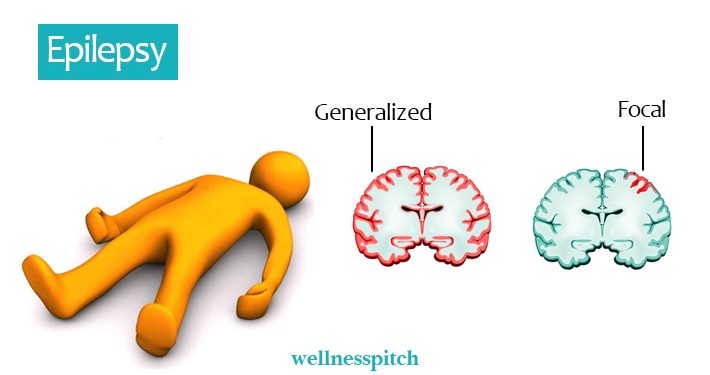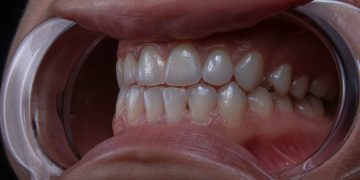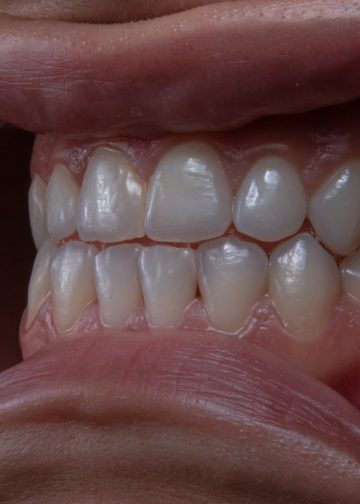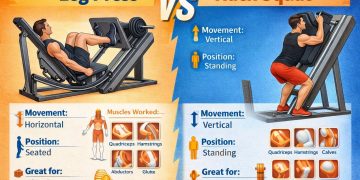The human brain is the source of human epilepsy.
Epilepsy was a chronic disorder, which was recognized by unprovoked seizures. A person is diagnosed with epilepsy if they have two unprovoked seizures that were not caused by some known and reversible medical condition or extremely low blood sugar.
According to new research, epilepsy recognizes itself as a disease rather than a disorder.
A person is considered to have epilepsy if they meet any of the following conditions.
- At least two unprovoked (or reflex) seizures occurring greater than 24 hours apart
- One unprovoked (or reflex) seizure and a probability of further seizures similar to the general recurrence risk (at least 60%) after two unprovoked seizures, occurring over the next ten years.
- Diagnosis of an epilepsy syndrome
- Epilepsy is considered to be resolved for individuals who had an age-dependent epilepsy syndrome but are now past the applicable age or those who have remained seizure-free for the last ten years, with no seizure medicines for the last five years
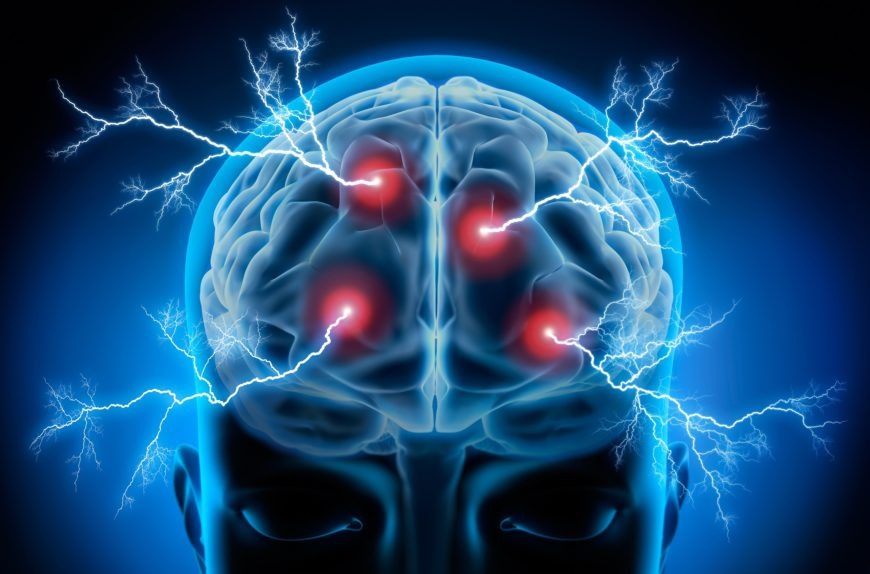
What happens in epilepsy?
Epilepsy causes unprovoked seizures. These seizures can be generalized, i.e., affect the whole brain, or they can be partial or focal, affecting a specific portion of the brain.
Seizures can range from mild to intense. You might not be able to recognize a mild seizure. But severe seizures can cause uncontrolled muscle movement and spasms. They can last for a few minutes. And you may not remember it happening afterward.
What is the difference between epilepsy and seizures?
Every seizure is not epilepsy. You may get a seizure because of:
- Brain injury
- High fever
- Head trauma
- Low blood sugar levels
- Alcohol withdrawal
Around 65 million people worldwide have epilepsy, making it one of the most common neurological diseases globally. Estimated, up to 70% of people living with epilepsy could live seizure-free if adequately diagnosed and treated.
Symptoms of Epilepsy:
A seizure is the main symptom of epilepsy, which makes it challenging to diagnose whether or not the person has epilepsy.
Focal Seizures
During these seizures, you are conscious. Symptoms are
- Dizziness
- Tingling and twitching of limbs
- Muscle spasms
- Alterations to the five senses
Complex Partial Seizures
A person who is suffering from this type of seizure losses awareness or consciousness. Symptoms are
- Unresponsiveness
- Staring blankly or a staring spell
- Temporary confusion
- Psychic symptoms such as fear
A person suffering from this seizure doesn’t remember what happens to him afterward.
-
Generalized Seizures
Generalized seizures are those seizures that involve all areas of the brain.
-
- Absence seizures– cause staring spell, repetitive movements
- Tonic seizures– muscle stiffening
- Atonic seizures– loss of muscle control
- Clonic seizures– repeated jerking muscle movements
- Myoclonic seizures– twitching of arms and legs
- Tonic-clonic seizures– loss of consciousness. Body stiffening, uncontrollable movement, loss of bladder control, tongue-biting
Triggering of the seizure:
Triggering of seizures occur by:
- Stress
- Medication
- Illness or fever
- Lack of sleep
- Bright, flashing lights
- Specific food
- Alcohol or drugs
As triggers don’t always follow the same pattern, some specific conditions can be separated that may trigger the seizure.

Causes of Epilepsy:
There is no identifiable cause of epilepsy. Many factors may affect us, causing epilepsy, including:
-
Brain Conditions
Brain tumors or stroke can cause epilepsy. It can also trigger a seizure. A stroke usually affects adults older than 35.
-
Infections
Meningitis, AIDS, encephalitis, or other infectious diseases may cause epilepsy.
-
Head injury
A trauma to your head as a result of an accident or any other situation may be a factor.
-
Genetics
Epilepsy can be genetic. Some time epilepsy runs in the family. In this case, specific genes are sensitive to the environment; hence, triggering seizures.
-
Prenatal injury
A baby in the womb can be exposed to several injuries, such as oxygen deficiency or infection. Such defects can cause the development of cerebral palsy or epilepsy.
-
Development Disorders
People with autism and neurofibromatosis are more prone to having epileptic seizures.
Risk Factors:
Risk factors on the watch list are:
-
Age
This condition can occur at any age, from children to adults.
-
Family History
Genetics and family history play a significant role in many diseases, including epilepsy.
-
Dementia
It increases the risk of epilepsy in older adults.
Complications Due To Epilepsy
Seizures can occur unexpectedly and can make any situation dire. They can be dangerous and cause serious injuries as well.
-
Car Accidents:
When a seizure occurs, you can lose control and awareness. This can lead to accidents or severe head injury. It is important not to let an epileptic person drive alone or for longer hours and take precautions to prevent such situations.
-
Drowning
While swimming or bathing, if a seizure is triggered, you can drown. Some seizures are likely to be triggered underwater.
-
Falling
Falling while having a seizure can result in fatal injuries and can result in paralysis in case you break your spine.
-
Pregnancy complications
Anti-epileptic medicine can increase the risk of congenital disabilities during pregnancy. Both mother and child need to be monitored closely, especially in the case of recurrent seizure episodes.
-
Emotional Health
Epileptic persons can easily fall into depression and are more prone to psychological problems such as anxiety, stress.
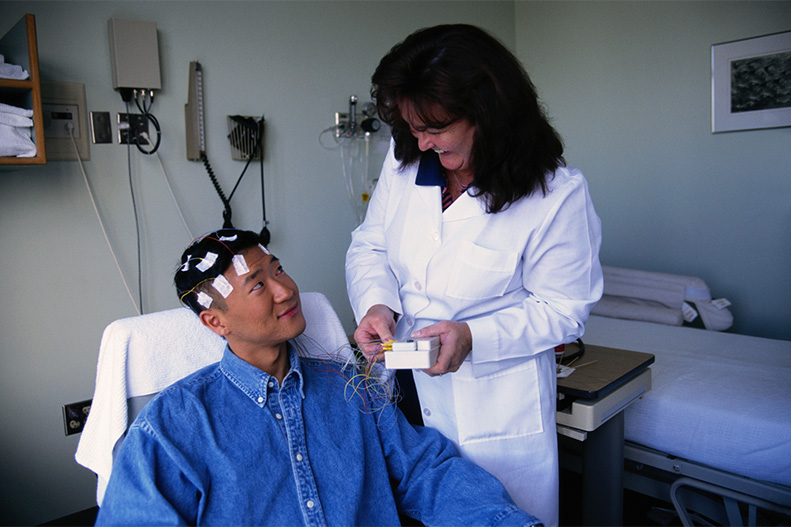
Treatment of Epilepsy
Epilepsy is manageable. The treatment plan varies from person to person, depending on the symptoms and severity.
-
Medication
Medication can reduce the number of seizures you have. In some people, one anti-seizure can do wonders, while others may have to use a variety of drugs. Medication needs to taken as prescribed.
-
Surgery
If medication fails to control the seizures or if the seizures get worse, surgery may be an option. During the operation, the area of the brain causing seizures is removed. There may be some post-surgery complications
-
Therapies
A vagus nerve stimulator can be placed underneath the skin of the chest, to control seizures. Deep brain stimulation can also be done to reduce seizures.
-
Ketogenic Diet
Introducing a ketogenic diet has proven to be useful for epileptic patients. Contacting a doctor or nutritionist is important before starting this diet.


